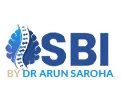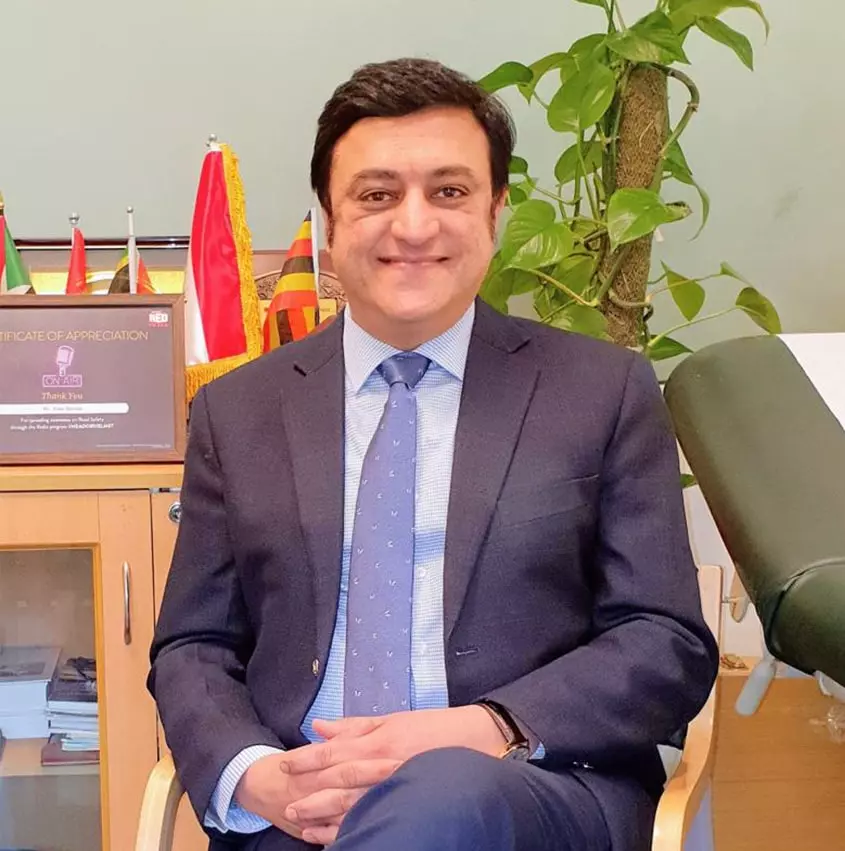At Spine and Brain India, we prioritize educating our patients about various health conditions to empower them to make informed decisions. In this comprehensive guide, we delve into spinal stenosis, its causes, symptoms, diagnosis, and treatment options. Our aim is to equip you with the knowledge necessary to navigate through this condition effectively.
What is Spinal Stenosis?
Spinal stenosis refers to the narrowing of the spaces within the spine, which can exert pressure on the spinal cord and nerves. This condition commonly occurs in the neck (cervical stenosis) or lower back (lumbar stenosis). The narrowing can result from several factors, including:
Bone Overgrowth: As people age, the bones and ligaments in the spine may thicken and harden, causing the spinal canal to narrow.
Herniated Discs: Discs act as cushions between the vertebrae. When a disc bulges or herniates, it can narrow the spinal canal.
Injuries: Trauma or injuries to the spine can lead to the development of spinal stenosis.
Tumors: Abnormal growths can form inside the spinal cord, leading to compression and narrowing of the spinal canal.
Symptoms of Spinal Stenosis
The symptoms of spinal stenosis can vary depending on the location and severity of the narrowing. Common symptoms may include:
Pain: Chronic back pain or neck pain, which may radiate to the arms, buttocks, or legs.
Numbness or Weakness: Tingling sensations, numbness, or weakness in the extremities.
Difficulty Walking: Some individuals may experience difficulty walking or maintaining balance, particularly during long periods of standing or walking.
Diagnosis
Accurate diagnosis of spinal stenosis is crucial for developing an effective treatment plan. Healthcare providers may employ various diagnostic tools, including:
Medical History: Gathering information about the patient's symptoms, medical history, and any previous injuries.
Physical Examination: Conducting a thorough physical examination to assess reflexes, muscle strength, and range of motion.
Imaging Tests: Utilizing imaging tests such as X-rays, MRI scans, or CT scans to visualize the spine and identify any narrowing or abnormalities.
Treatment Options
Treatment for spinal stenosis aims to alleviate symptoms, improve mobility, and enhance overall quality of life. Depending on the severity of the condition, treatment options may include:
Medications: Nonsteroidal anti-inflammatory drugs (NSAIDs), muscle relaxants, or pain relievers may help alleviate pain and inflammation associated with spinal stenosis.
Physical Therapy: Tailored exercise programs and physical therapy can strengthen the muscles supporting the spine, improve flexibility, and alleviate symptoms.
Epidural Steroid Injections: Injections of corticosteroids into the affected area can provide temporary relief from pain and inflammation.
Surgery: In severe cases where conservative treatments fail to provide relief, surgical intervention may be necessary. Surgical procedures such as decompression laminectomy or spinal fusion can help alleviate pressure on the spinal cord and nerves.
Conclusion
Spinal stenosis can significantly impact an individual's quality of life, but with early diagnosis and appropriate treatment, many individuals can effectively manage their symptoms and maintain an active lifestyle. If you or a loved one are experiencing symptoms of spinal stenosis, we encourage you to seek medical evaluation promptly. Our team of experienced healthcare professionals, led by Dr. Arun Saroha at Spine and Brain India, is here to provide personalized care and support every step of the way.
In summary, understanding spinal stenosis, its symptoms, and available treatment options is crucial for effectively managing this condition and improving quality of life. If you're suffering from symptoms of spinal stenosis, don't hesitate to reach out to our medical team, led by the Best Neurosurgeon in India, Dr. Arun Saroha, for expert guidance and personalized care.



